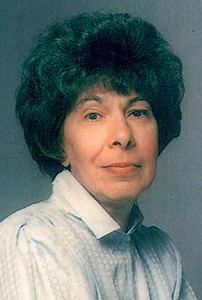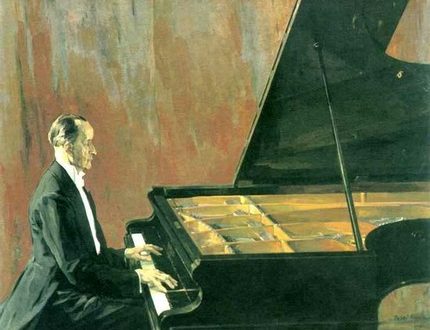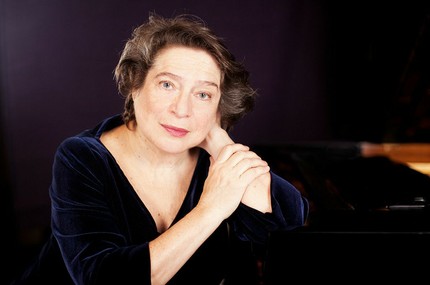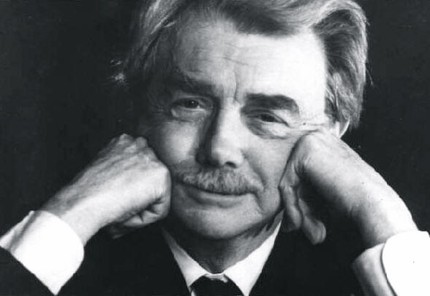
Vera Vasilievna Gornostayeva (Vera Gornostayeva) |
Vera Gornostayeva

Vera Vasilievna Gornostaeva came to performing activity, in her own words, “through pedagogy” – the path is not quite usual. More often, the opposite happens: they achieve fame on the concert stage and, as a next step, they begin to teach. Examples of this are the biographies of Oborin, Gilels, Flier, Zach and other famous musicians. Going in the opposite direction is much rarer, the case of Gornostaeva is one of those exceptions that confirm the rule.
Her mother was a music teacher who devoted herself entirely to working with children; The “pediatrician teacher”, with her characteristic humorous intonation, speaks about the profession of Gornostaev’s mother. “I received my first piano lessons at home,” says the pianist, “then I studied at the Moscow Central Music School with a brilliant teacher and charming person Ekaterina Klavdievna Nikolaeva. At the conservatory, my teacher was Heinrich Gustavovich Neuhaus.
In 1950, Gornostaeva performed at the international competition of performing musicians in Prague and won the title of laureate. But after that she came not to the stage of the concert stage, as it would be natural to expect, but to the Gnessin Musical and Pedagogical Institute. A few years later, from 1959, she began working at the Moscow Conservatory; He teaches there to this day.
“It is usually believed that pedagogy creates serious obstacles for concert performance,” says Gornostaeva. “Of course, classes in the classroom are associated with great loss of time. But let’s not forget! — and with great benefit to the one who teaches. Especially when you are lucky enough to work with a strong, talented student. You have to be at the height of your position, right? — which means you have to constantly think, search, delve into, analyze. And not just to search – seek out; after all, it’s not the search itself that’s important in our profession, it’s the discoveries that matter. I am convinced that it was pedagogy, in which I plunged into for many years by the will of circumstances, formed a musician in me, made me who I am … The time has come when I realized that I I can do not play: it is very difficult to remain silent if there is that to tell. Around the beginning of the seventies, I began to perform regularly. Further more; now I travel a lot, touring in various cities, recording records.
Each concert performer (except the ordinary one, of course) is remarkable in its own way. Gornostaeva is of interest, first of all, as personality – original, characteristic, with a lively and interesting creative face. It is not her pianism in itself that attracts attention; not external performance accessories. Perhaps some of today’s (or yesterday’s) students of Gornostaeva will be able to make a better impression on stage than their teacher. This is the whole point – they, with their confident, strong, jovial virtuosity, will impress more winning; it is deeper and more significant.
Once, speaking in the press, Gornostaeva said: “Professionalism in art is a means by which a person reveals his inner world. And we always feel the content of this inner world in a collection of poems, in a playwright’s play, and in a pianist’s recital. You can hear the level of culture, taste, emotionality, intellect, character” (Named after Tchaikovsky: Collection of articles and documents on the Third International Competition of Musicians-Performers named after P.I. Tchaikovsky. – M 1970. S. 209.). Everything is right here, every word. Not only roulades or graces, phrasing or pedalization are heard in the concert – only an inexperienced part of the audience thinks so. Other things are also heard …
With Gornostaeva the pianist, for example, it is not difficult to “hear” her mind. He is everywhere, his reflection is on everything. She undoubtedly owes him the best in her performance. To those, first of all, that he perfectly feels the laws of musical expressiveness: he knows the piano thoroughly, knows chego can achieve on it and as do it. And how skillfully she uses her pianistic abilities! How many of her colleagues are only partially, in one way or another, realizing what nature has given them? Gornostaeva fully reveals her performing abilities – a sign of both strong characters and (most importantly!) outstanding minds. This extraordinary thinking, its high professional class is especially felt in the best pieces of the pianist’s repertoire – mazurkas and waltzes, ballads and sonatas by Chopin, rhapsodies (op. 79) and intermezzo (op. 117 and 119) by Brahms, “Sarcasm” and the cycle “Romeo and Juliet” by Prokofiev, Preludes by Shostakovich.
There are concert performers captivating the audience by force their feelings, burning with passionate enthusiasm, affectation of performing speech. Gornostaeva is different. In her stage experiences, the main thing is not quantitative factor (how strong, bright …), and qualitative – the one that is reflected in the epithets “refined”, “refined”, “aristocratic”, etc. I recall, for example, her Beethoven programs – “Pathetic”, “Appassionata”, “Lunar”, Seventh or Thirty-second sonatas. Neither the powerful dynamics performed by the artist of this music, nor the energetic, forceful pressure, nor whirlwind passions. On the other hand, subtle, refined shades of emotions, a high culture of experience – especially in slow parts, in episodes of a lyrical-contemplative nature.
True, the lack of “quantitative” in the game Gornostaeva sometimes still makes itself felt. It is not easy for her at the heights of climaxes, in music that requires dense, rich fortissimo; the purely physical possibilities of the artist are limited, and at some moments it is noticeable! She has to strain her pianistic voice. In Beethoven’s Pathetique, she usually succeeds most of all in the second movement, the calm Adagio. In Mussorgsky’s Pictures at an Exhibition, Gornostaeva’s melancholic Old Castle is very good and the Bogatyr Gates are somewhat less impressive.
And yet, if we keep in mind point in the art of the pianist, we must talk about something else. M. Gorky, talking with B. Asafiev, once remarked; real musicians are different in that they can hear not just music. (Let us recall Bruno Walter: “Only a musician is only a semi-musician.”) Gornostaeva, in Gorky’s words, is given to hear in the art of music not only music; this is how she won the right to the concert stage. She hears “further”, “wider”, “deeper”, as is usually characteristic of people with a versatile spiritual outlook, rich intellectual needs, a developed figurative-associative sphere – in short, those who are able to perceive the world through the prism of music …
With such a character as Gornostaeva, with her active reaction to everything around her, it would hardly be possible to lead a one-sided and closed way of life. There are people who are naturally “contraindicated” to do one thing; they need to alternate creative hobbies, change forms of activity; contrasts of this kind do not bother them in the least, but rather delight them. Throughout her life, Gornostaeva was engaged in various types of labor.
She writes well, quite professionally. For most of her colleagues, this is not an easy task; Gornostaeva has long been attracted to him and inclination. She is a literary gifted person, with an excellent sense of the subtleties of the language, she knows how to clothe her thoughts in a lively, elegant, non-standard form. She was repeatedly published in the central press, many of her articles were widely known – “Svyatoslav Richter”, “Reflections at the Concert Hall”, “A Man Graduated from the Conservatory”, “Will You Become an Artist?” and others.
In his public statements, articles and conversation, Gornostaev deals with a wide variety of issues. And yet there are topics that excite her more than anyone else. These are, first of all, the scenic destinies of creative youth. What prevents bright, gifted students, of whom there are so many in our educational institutions, that, sometimes, does not allow them to grow into great masters? To some extent – the thorns of concert life, some shady moments in the organization of the philharmonic life. Gornostaeva, who has traveled and observed a lot, knows about them and with all frankness (she knows how to be direct, if necessary, and sharp) spoke on this subject in the article “Does the director of the philharmonic love music?”. She, further, is against too early and quick successes on the concert stage – they contain many potential dangers, hidden threats. When Eteri Anjaparidze, one of her students, received the IV Prize at the Tchaikovsky Competition at the age of seventeen, Gornostaeva did not consider it superfluous to publicly declare (in the interests of Anjaparidze herself) that this was an “exorbitantly high” award for her age. “Success,” she once wrote, “must also come in due time. It’s a very powerful tool…” (Gornostaeva V. Will you become an artist? // Soviet culture. 1969 29 pairs.).
But the most dangerous thing, Vera Vasilievna repeats again and again, is when they cease to be interested in anything other than the craft, pursuing only nearby, sometimes utilitarian goals. Then, according to her, young musicians, “even having an unconditional performing talent, in no way develop into a bright artistic personality, and remain limited professionals until the end of their days, who have already lost the freshness and spontaneity of youth over the years, but have not received much-needed artist of the ability to think independently, so to speak, spiritual experience ” (Ibid.).
Relatively recently, the pages of the newspaper Sovetskaya Kultura published literary-critical sketches made by her of Mikhail Pletnev and Yuri Bashmet, musicians whom Gornostaeva treats with great respect. On the occasion of the 100th anniversary of the birth of G. G. Neuhaus, her essay “Master Heinrich” was published, which had a wide resonance in musical circles. Even greater resonance – and even greater controversy – was caused by the article “Who Owns Art”, in which Gornostaeva touches on some tragic aspects of our musical past (“Soviet Culture”, May 12, 1988).
However, not only readers are familiar with Gornostaeva; both radio listeners and TV viewers know it. First of all, thanks to the cycles of musical and educational programs in which she takes on the difficult mission of telling about the outstanding composers of the past (Chopin, Schumann, Rachmaninov, Mussorgsky) – or about the works written by them; at the same time she illustrates her speech on the piano. At the time, Gornostaeva’s telecasts “Introducing the Young”, which gave her the opportunity to acquaint the general public with some of the debutants of today’s concert scene, aroused great interest. In the 1987/88 season, the television series Open Piano became the main one for her.
Finally, Gornostaeva is an indispensable participant in various seminars and conferences on musical performance and pedagogy. She delivers reports, messages, open lessons. If possible, he shows the students of his class. And, of course, he answers numerous questions, consults, gives advice. “I had to attend such seminars and symposiums (they are called differently) in Weimar, Oslo, Zagreb, Dubrovnik, Bratislava and other European cities. But, frankly, what I like most of all are such meetings with colleagues in our country – in Sverdlovsk, Tbilisi, Kazan … And not only because here they show especially great interest, as evidenced by the crowded halls and the atmosphere itself, which reigns at such events. The fact is that in our conservatories, the very level of discussion of professional problems, in my opinion, is higher than anywhere else. And this can not but rejoice …
I feel I am more useful here than in any other country. And there is no language barrier.”
Sharing the experience of her own pedagogical work, Gornostaeva does not tire of emphasizing that the main thing is not to impose interpretive decisions on the student. outside, in a directive manner. And do not demand that he play the work he is learning the way his teacher would play. “The most important thing is to build a performance concept in relation to the individuality of the student, that is, in accordance with his natural features, inclinations, and capabilities. For a real teacher, in fact, there is no other way.”
… Over the long years that Gornostaeva devoted to pedagogy, dozens of students passed through her hands. Not all of them had a chance to win at performing competitions, like A. Slobodyanik or E. Andzhaparidze, D. Ioffe or P. Egorov, M. Ermolaev or A. Paley. But all without exception, communicating with her during classes, came into contact with the world of high spiritual and professional culture. And this is the most valuable thing that a student can receive in art from a teacher.
* * *
Of the concert programs played by Gornostaeva in recent years, some have attracted particular attention. For example, Chopin’s three sonatas (season 1985/86). Or, Schubert’s piano miniatures (season 1987/88), among which were the rarely performed Musical Moments, Op. 94. The audience met with interest the Clavierabend dedicated to Mozart – Fantasia and Sonata in C minor, as well as the Sonata in D Major for two pianos, played by Vera Vasilievna together with her daughter, K. Knorre (season 1987/88).
Gornostaeva restored a number of compositions in her repertoire after a long break – she rethought them in some way, played in a different way. One can refer in this connection at least to Shostakovich’s Prelude.
P. I. Tchaikovsky attracts her more and more. She played his “Children’s Album” more than once in the second half of the eighties, both in television programs and at concerts.
“Love for this composer is probably in my blood. Today I feel that I cannot but play his music – as it happens, a person cannot but say something, if there is – what … Some of Tchaikovsky’s pieces move me almost to tears – the same “Sentimental Waltz”, in which I have been in love since childhood. It happens only with great music: you know it all your life – and you admire it all your life … “
Recalling the performances of Gornostaeva in recent years, one cannot fail to name one more, perhaps especially important and responsible. It took place in the Small Hall of the Moscow Conservatory in April 1988 as part of a festival dedicated to the 100th anniversary of the birth of G. G. Neuhaus. Gornostaeva played Chopin that evening. And she played amazingly well…
“The longer I give concerts, the more I am convinced of the importance of two things,” says Gornostaeva. “Firstly, on what principle does the artist compose his programs, and does he have principles of this kind at all. Secondly, whether he takes into account the specifics of his performing role. Does he know what he is strong in, and what he is not, where his area in the piano repertoire, and where – not his.
As for the preparation of programs, the most important thing for me today is to find a certain semantic core in them. What matters here is not only the selection of certain authors or specific works. The very combination of them is important, the sequence in which they are performed at the concert; in other words, a succession of alternations of musical images, states of mind, psychological nuances… Even the general tonal plan of works that sound one after another during the evening matters.
Now about what I have designated by the term performing role. The term, of course, is conditional, approximate, and yet … Every concert musician should, in my opinion, have some kind of saving instinct that would tell him what is objectively closer to him and what is not. In what he can best prove himself, and what he would be better off avoiding. Each of us has by nature a certain “range of the performing voice” and it is at least unreasonable not to take this into account.
Of course, you always want to play a lot of things – both this and that, and the third … The desire is completely natural for every real musician. Well, you can learn everything. But far from everything should be taken out on the stage. For example, I play a variety of compositions at home – both those that I want to play myself and those that my students bring to class. However, in the programs of my public speeches, I put only some part of what I have learned.
Gornostaeva’s concerts usually begin with her verbal commentary on the pieces she performs. Vera Vasilievna has been practicing this for a long time. But in recent years, the word addressed to the listeners has, perhaps, acquired a special meaning for her. By the way, she herself believes that Gennady Nikolaevich Rozhdestvensky influenced her here in some way; his example once again confirmed her in the consciousness of the importance and necessity of this matter.
However, Gornostaeva’s conversations with the public have little in common with what others are doing in this regard. For her, it is not the information about the performed works that is important in itself, not the factology, not the historical and musicological information. The main thing is to create a certain mood in the hall, to introduce the listeners into the figuratively poetic atmosphere of music – to “dispose” to its perception, as Vera Vasilievna says. Hence her special manner of addressing the audience – confidential, naturally natural, devoid of any mentoring, lecturer’s pathos. There can be hundreds of people in the hall; each of them will have the feeling that Gornostaeva is referring specifically to him, and not to some abstract “third person”. She often reads poetry while talking to the audience. And not only because she herself loves them, but for the simple reason that they help her bring listeners closer to music.
Of course, Gornostaeva never, under any circumstances, reads from a piece of paper. Her verbal comments on executable programs are always improvised. But the improvisation of a person who knows very clearly and precisely what he wants to say.
There is a particular difficulty in the genre of public speaking that Gornostaeva has chosen for herself. The difficulty of transitions from verbal appeal to the audience – to the game and vice versa. “Before, this was a serious problem for me,” says Vera Vasilievna. “Then I got used to it a little. But anyway, the one who thinks that speaking and playing, alternating one with the other, is easy – he is very mistaken.
* * *
A natural increase arises: how does Gornostaeva manage to do everything? And, most importantly, how everything is with her turns? She is an active, organized, dynamic person – this is the first thing. Second, no less significant, she is an excellent specialist, a musician of rich erudition, who has seen a lot, learned, re-read, changed her mind, and, finally, most importantly, she is talented. Not in one thing, local, limited by the framework of “from” and “to”; talented in general – broadly, universally, comprehensively. It is simply impossible not to give her credit in this regard …
G. Tsypin, 1990





